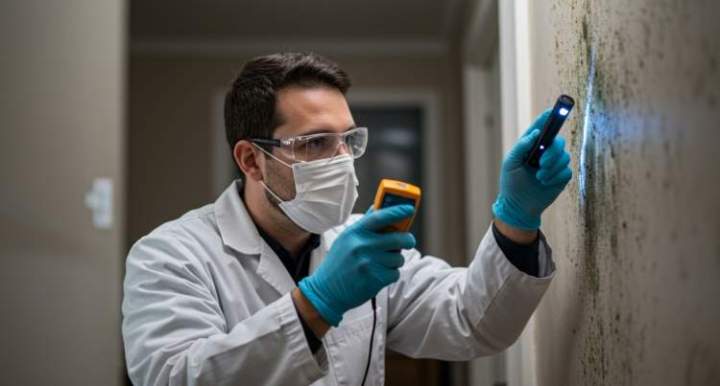What Areas of a Home Are Most Susceptible to Mold Growth?

Mold can grow in various areas of your home, especially where moisture is present. At Above & Beyond Home Inspector, we identify the most common spots where mold is likely to thrive.
High-Humidity and Damp Areas
Mold thrives in areas with high humidity and moisture, making bathrooms, kitchens, and laundry rooms prime candidates for mold growth. These spaces often have poor ventilation and are subjected to frequent water exposure from showers, sinks, and appliances. At Above & Beyond Home Inspector, we recommend paying special attention to bathrooms, where condensation and steam from showers can easily lead to mold growth on walls, ceilings, and grout.
Kitchens, with their frequent use of sinks, dishwashers, and refrigerators, are also prone to water leaks that can create the perfect environment for mold. Similarly, laundry rooms that contain washers and dryers are at risk due to water spills, leaks, or high humidity levels. Regular inspection and proper ventilation can help reduce mold growth in these areas.
Basements, Attics, and Crawl Spaces
Basements, attics, and crawl spaces are some of the most vulnerable areas for mold growth due to their inherent moisture problems. At Above & Beyond Home Inspector, we find that basements are especially prone to mold because they are typically located below ground level, where moisture can seep in through the foundation. The lack of proper ventilation in these spaces also increases the risk of mold growth.
Similarly, attics can be susceptible to mold when there are leaks in the roof or inadequate insulation. If warm, moist air enters the attic and condenses on cool surfaces, it creates an ideal breeding ground for mold. Crawl spaces, which are often damp and poorly ventilated, are another common location for mold. Since these areas are typically out of sight, mold can spread undetected, making regular inspections essential for early detection. By targeting these moisture-prone areas, homeowners can prevent mold issues from escalating and protect the integrity of their property.
